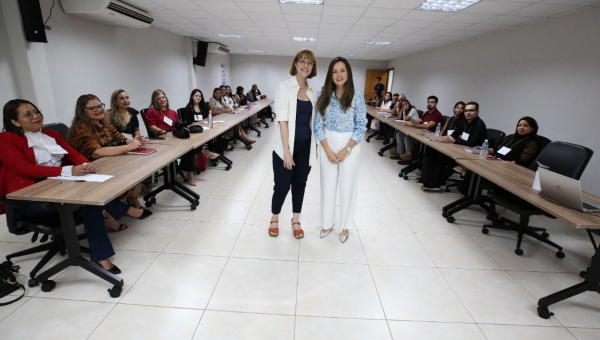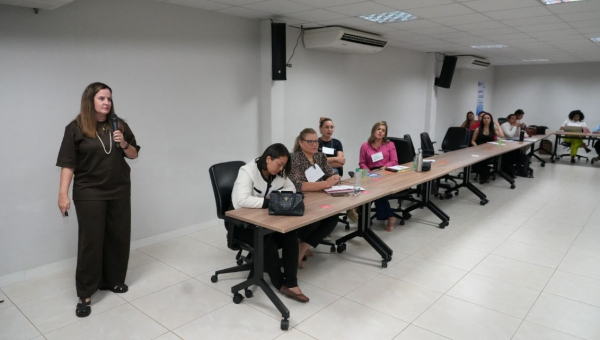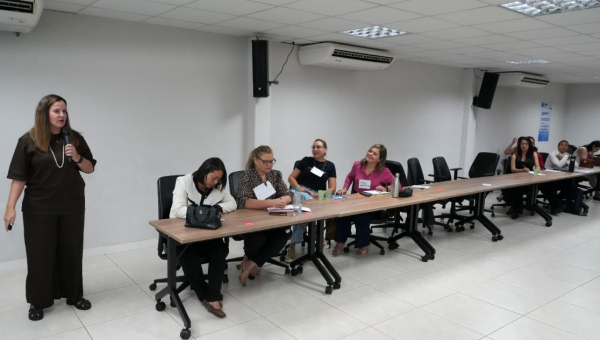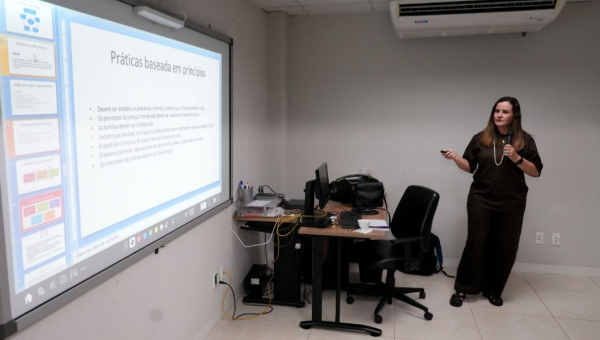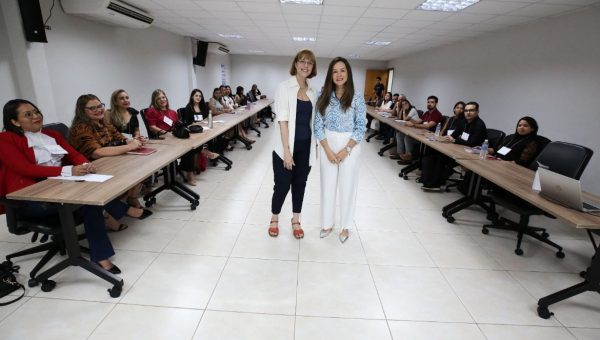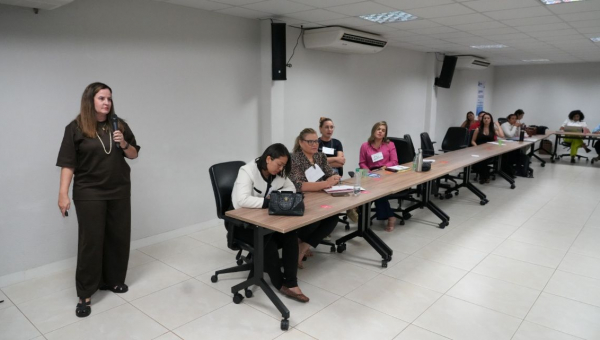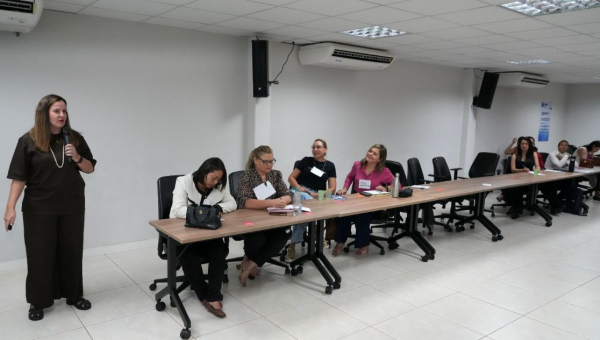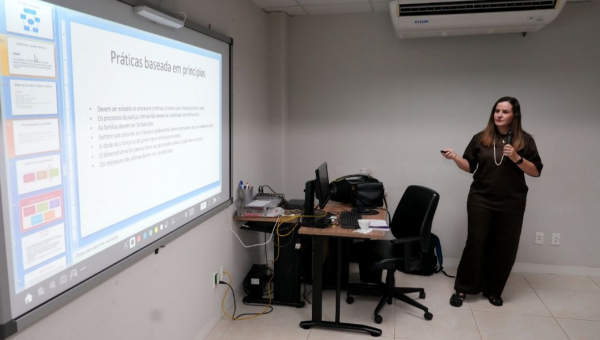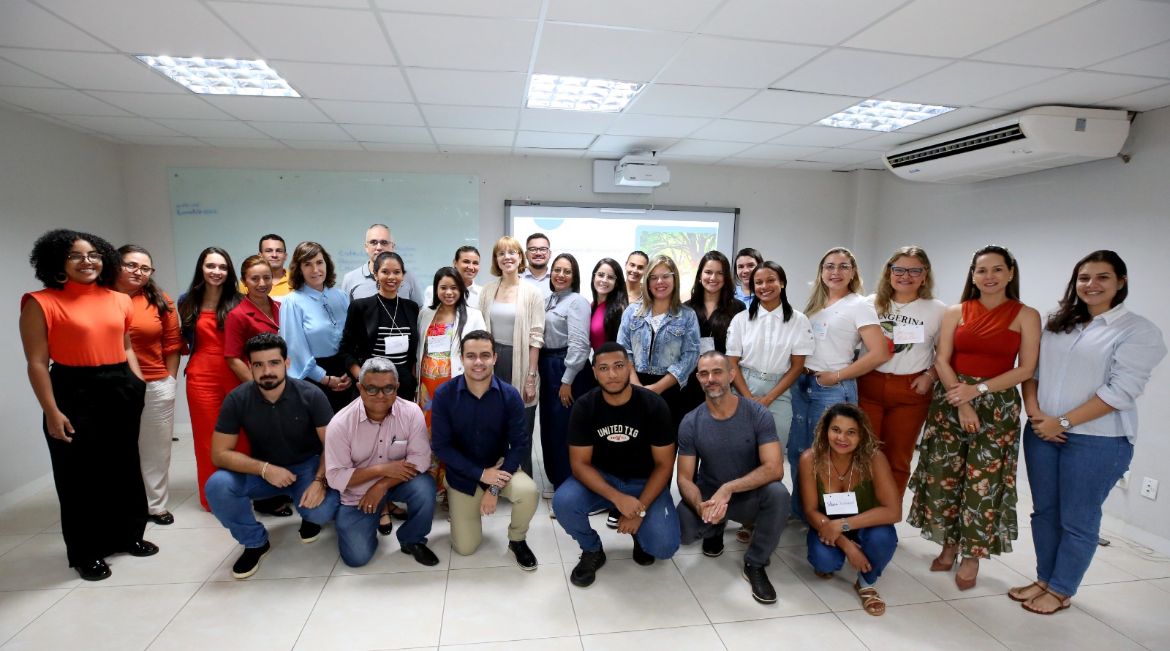
The face-to-face stage of the Class VI of the course on Training for Restorative Facilitators has begun. The training is part of the institutional policy of disseminating the Restorative Justice within the Judiciary of the State of Tocantins, in line with the guidelines of the Resolution 225 of the National Council of Justice (CNJ) of 2016, and it aims to foster practices on peaceful conflict resolution, reinforcing a culture of peace and strengthening social bonds. The programming takes place at the Superior School of the Judges of the State of Tocantins and it ends on Wednesday (April 30th).
Led by Professor Mayara de Carvalho Siqueira and tutor Lorena da Cruz Neves Pimenta Gutierrez, participants will receive information on the fundamentals of restorative circles, covering topics such as Stages of Circular Processes, Nonviolent Communication Techniques and Drawing up Restorative Agreements. On Wednesday (April 30th) there will be a class entitled on “Introduction to the Practice of Circular Processes in the Restorative Justice”, given by Judge Luciana Costa Aglantzakis.
Then, from May 12th to 14th, 2025, the practical stage called “Circles in Motion” will take place. During this phase, students will experience the making of symbols, opening and closing ceremonies for circles, the collective construction of values and guidelines, as well as practical simulations that will include the application of active listening techniques, storytelling and consensus building.
The training will continue with the supervised internship stage, scheduled to take place from May 15th to July 11th, 2025, when participants will have to carry out restorative circles in schools, community environments or partner institutions, consolidating the knowledge acquired in practice.
About the course
With a total teaching load of 70 hours for certification, the course reaffirms the commitment of Esmat to contribute to the construction of a fairer, more empathetic and collaborative society, promoting social pacification and the transformation of interpersonal relationships.
